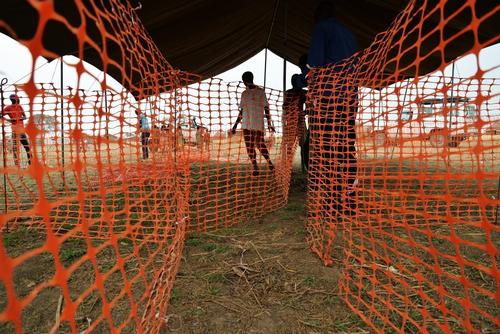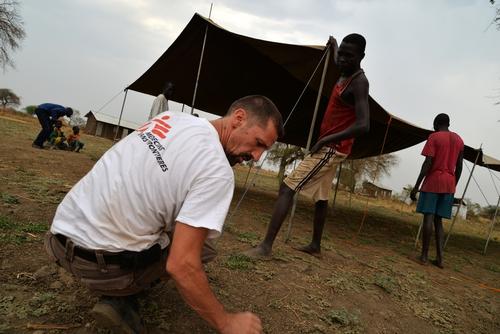Medecins Sans Frontieres (MSF) teams in the Gambella region of Ethiopia are expanding the vaccine package being provided to South Sudanese refugees to include PCV (Pneumococcal conjugate vaccine) and Hib (Haemophilus influenzae type B) in order to reduce child mortality linked to pneumococcal diseases.
The PCV and Hib vaccines help protect populations against respiratory infections, one of the primary causes of mortality among refugees who frequently live in densely-packed settlements where it’s all but impossible to maintain good hygiene, particularly during the rainy season. During the 2014 rainy season, in fact, teams working with Gambella’s refugee population saw the mortality rate among young children rise well above the emergency threshold of two deaths per day per 10,000 people.
“The objective is to extend the introduction of PCV and Hib vaccines in the humanitarian response to a larger age group to reduce the number of cases and deaths for which the emergency might be responsible,” explained Hajir Elyas, MSF medical coordinator in Ethiopia.
To meet this objective, MSF started a vaccination campaign among refugees in Gambella targeting children aged from 6 weeks to 59 months. The first round started last November; the second followed eight weeks later. The third round is done through the routine vaccination. This vaccination campaign targeted 50,000 South Sudanese children for PCV vaccines and 26,000 for Hib vaccines.

Such efforts are rarely attempted in situations like this—which is precisely why MSF is seeking to show once more that it can be done. “It is not an easy operation because vaccines have to be kept cold at a certain temperature to be effective and two doses minimum are needed for effective protection. It is not a onetime operation,” said Elyas. “We are showing that it is possible to augment the vaccine package with the PCV and Hib vaccines in large numbers during in an emergency humanitarian response. This intervention should be a first step to review current policy.”
MSF is working to increase use of the PCV vaccine in humanitarian contexts, and has so far conducted campaigns in South Sudan’s Yida refugee camp in 2013, Uganda’s Adjumani district in 2014 and in Ethiopia for Gambella region in 2015. MSF initially paid $21 per child (3 doses) for the PCV vaccines. During vaccination campaign in Gambella region, MSF had access to a limited quantity of PCV vaccine through donations from the manufacturers. But this is not a viable solution. MSF is campaigning for the price of the PCV vaccine to be reduced so that countries and humanitarian agencies like MSF have access to a sustainable affordable price so that more children can be protected against respiratory infections (http://afairshot.org/).
“There is an urgent need to strengthen use of PCV in emergency vaccine package and so to give access to PCV at an affordable price for organization and states responding to emergencies” concluded Elyas.
According to the UN, more than 200,000 South Sudanese refugees have been registered in the refugee sites in Gambella region, Ethiopia, since conflict broke out in neighbouring South Sudan in December 2013. More continue to arrive each day. In Ethiopia, MSF provides healthcare to the South Sudanese refugee in the camps of Leitchuor, Tierkidi, Kule and in Itang health center. MSF teams also run regularly mobile clinics to the entry points and transit camps where the refugee stand before to be transfer inside the refugee camps mentioned above.



